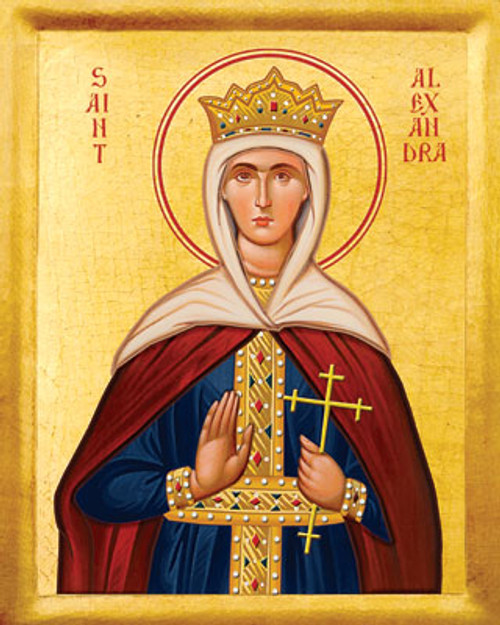Commemorated on January 8
Severinus was a high-born Roman living as an anchorite in the East. He himself was an ascetic in practice. He is first recorded as traveling along the Danube in Noricum and Bavaria, preaching Christianity, procuring supplies for the starving, redeeming captives and establishing monasteries at Passau and Favianae, At the age of eight, the orphaned Anthony of Lerins was entrusted to the care of Severinus and brought up at the monastery. Upon the death of Severus in 482, he was sent to Germany and put in the care of his uncle, Constantius, an early Bishop of Lorsch.
While the Western Empire was falling apart, Severinus, thanks to his virtues and organizational skills, committed himself to the religious and material care of the frontier peoples, also taking care of their military defense. He organized refugee camps, migrations to safer areas, and food distribution.
His efforts seem to have won him wide respect, including that of the Germanic chieftain Odoacer. Eugippius credits him with the prediction that Odoacer would become king of Rome. However, Severinus warned that Odoacer would rule not more than fourteen years. According to Eugippus, Gibuld of the Alamanni used to harry Passau, until he was asked by Severinus to free his Roman hostages. Gibuld was so impressed by the Christian abbot that he agreed to free seventy of his prisoners.
Severinus also supposedly prophesied the destruction of Asturis (perhaps Klosterneuburg), Austria, by the Huns. When the people would not heed his warning, he took refuge in Comagena.
He established refugee centers for people displaced by the invasion, and founded monasteries to re-establish spirituality and preserve learning in the stricken region.
He died in his monastic cell at Favianae while singing Psalm 150. Six years after his death, his monks were driven from their abbey, and his body was taken to Italy, where it was at first kept in the Castel dell'Ovo, Naples, then eventually interred at the Benedictine monastery rededicated to him, the Abbey of San Severino in the city of Naples.







